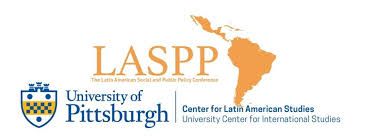Call for Papers - Latin American Public and Social Policy Conference

The University of Pittsburgh's 24th Latin American Social and Public Policy Conference (LASPP) will take place on March 27-28. The call for abstracts goes until January 18th and includes a broad range of topics within social sciences and humanities.
All the information and the submission page are found at: https://www.ucis.pitt.edu/clas/laspp -- this link also includes the program and photos of last years' conferences.
This year, our keynote speaker is Prof. Carmelo Mesa Lago (Economics) and we have a special roundtable with Prof. Kathleen Musante and Prof. Cesar Abadia-Barrero (Anthropology). We are currently working on an additional special panel on local urban development (Public Administration) and one on Political Science.
There are a few highlights from the previous years that we'll keep in 2020. First, the conference is usually restricted to 50-60 presenters, meaning we select only very promising projects and that we create an environment where networking and exchange of feedback are very strong.
We want to make sure that every presenter gets feedback on their papers. For that, we have Pitt faculty (usually senior) as discussants of every panel. Furthermore, we usually have only 2 panels per timeslot. That way, presentations usually have around 20-30 attendees.
We also make sure to facilitate the participation of those coming from different places. The John Frechione Travel Award is offered to almost every participant who is not from the Pittsburgh area. It includes accommodations and most meals. Thus, most participants just have to cover costs with transportation, visa, and other local expenditures. We also host them in the same hotel and organize a couple of social events, as a manner of increasing the amount of time participants spend networking.
Finally, we do our best to keep a balance with participants from different career stage and origin. Last year, we had presenters who were faculty, graduate students and, in a small number, undergraduates with outstanding projects. Many of them came from U.S. universities, as well as institutions from 13 other countries.
